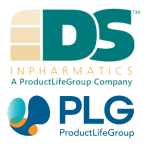Trust is critical when choosing a contract manufacturing organization (CMO), especially when offshoring. With China-based contract manufacturing organizations being increasingly preferred by biopharmaceutical companies, these businesses must evaluate both the advantages and the difficulties the market can offer.

Image Credit: DSI, a PLG Company
As a senior project management consultant at DSI, a ProductLife Group company, David Blasingame explains that China is a natural choice for early phase one material and early projects to produce laboratory materials as the CMOs of China are recognized for being highly efficient at manufacturing that type of material at a much smaller expense compared to its European or United States competitors.
“The allure is time and money for early phase programs where the focus is on getting toxicity studies underway to get some understanding of whether you have a program or not,” explains David, who spent a lot of time working with CMOs in China while at a range of biotech organizations.
An additional benefit that China-based CMOs provide is that the Chinese government significantly invests in these organizations.
Due to this, several large biopharma organizations own floors inside these businesses as they can be constructed and operated to their own preference, meaning they become an arm of the business at a much smaller cost compared to investing in a different location.
In-Person connections
While advantages exist, there can be unexpected expenses that are not made clear in the quote. One of the main factors to consider, for example, is the manufacturing supervision of the CMO by the person-in-plant, and this will not be included in a quote with a China-based CMO.
It’s going to be a fairly significant amount because of the travel to get there, the amount of time that it takes and how long your person-in-plant is likely to stay,”
David Blasingame, Senior Project Management Consultant, DSI, a ProductLife Group Company.
Onsite presence is crucial due to the very broad range of plants in regards to condition and size, from facilities with the newest technology to facilities that have existed for 20 to 30 years and have been remodeled due to a change in ownership.
David states that it is equally vital to be on the floor to develop relationships and connections. “More importantly, you need to know what you’re working with,” he continues.
“In one example from my time in biotech, we had seen the facility and made material there only to go back a week or two later, and it was no longer there. So, it is certainly something to stay on top of.”
Being onsite makes sure that the scheme receives the attention it requires from senior management and the CMO. It assists in managing some of the cultural differences that can put plans in jeopardy.
“What I learned working with China-based CMOs was that ‘yes’ doesn’t always mean yes,” David notes.
“We would ask for something during conference calls or even boardroom meetings where we were all together, even face-to-face. The answer would be ‘yes.’”
“But what we found out later was either there was a miscommunication or misunderstanding because of the language barrier, or it was an appeasement tactic, meaning they never had any intention of actually following through with the request. So, person-in-plant was very, very important.”
Labor and oversight challenges
David notes that one of the largest challenges with China-based CMOs is the high rate of turnover.
“We probably ran through four different project managers in a couple of years. So, it wasn’t easy to maintain consistency. You also weren’t quite sure the level of experience or expertise you would get with these replacements.”
Employees who were familiar with the project were lost as a result of high turnover. New people in the project team were also not always given the required access to data to get familiar with the project because the CMO was working to protect data security.
For projects that covered raw materials through drug products and active pharmaceutical ingredients, a challenge that David and his team encountered was that despite being told the CMO would manage each step, this was not the case as it was theoretically a single organization.
For a sponsor business, this means that they must account for the resources to synchronize across the different activities and sites.
“By sticking with one organization, we thought they’d help us integrate and coordinate the manufacturing schedules, the shipments of raw materials, or API for the drug product manufacturing, and the like,” he explains.
“What we found was each function and building within each city was just an independent organization. That means it falls back on resources at the sponsor and for smaller organizations that rely on external partners, that is a consideration.”
A further challenge that David encountered while working with the China-based CMO was that the team lacked certain skills to progress through the development stage and bring it to a commercial procedure.
“If you’re looking for a commercial process that you might be able to take anywhere, I’m not necessarily sure that’s the place that you would go,” he states.
“The emphasis is typically on speed and cost, and they are capable of making multiple batches to get you the amount of material you need, but that isn’t necessarily the most efficient process.”
Times are changing
Chinese regulators, now known as The National Medical Products Administration (NMPD), have been working over the past five years to implement similar regulations as the European Medicines Agency and the United States Food and Drug Administration.
“Now they’re much more focused on making high-quality APIs, not just for early phase programs; they really want commercial drugs as well,” David notes. “They want to be able to control them internally for their citizens. That’s a step in the right direction.”
Collaborating with China-based CMOs is pragmatic for early phase projects, but for programs in a later stage, it is crucial to have a well-established procedure before seeking a China-based CMO.
David adds, “If you hand them a process that is worked out, they would probably be very successful with it.”
A benefit that CMOs in China can offer compared to different countries is the dedication to progress their talent.
“The CMOs graduate a lot of Ph.D. chemists and others across all their universities, and these are top-notch schools and top-notch candidates,” he adds.
“They have a very heavy recruiting process where they would shut our project down for a week while they send their top VPs and project managers to the universities before they graduate those students. That’s a practice I wish we had in the U.S.”
David explains that perhaps one of the most fundamental reasons to collaborate with a China-based CMO is to enter the Chinese market. “It’s much easier to do that if you’re manufacturing internally in the country than externally,” he states.
Acknowledgments
Produced from materials originally authored by Meranda Parascandola from Design Space InPharmatics.
About DS InPharmatics 
DS InPharmatics (DSI) provides regulatory, technical, and project management consulting services to healthcare product companies that manufacture and/or market pharmaceuticals, biopharmaceuticals, and cellular and gene therapy products.
Since 2007 we have provided our clients with innovative strategies and exceptional quality work products intended to enhance product development, approval, and marketing presence. Whether advocating CMC strategy, directing CMC operations or developing CMC submission content that represent the best interests of emerging biotech, we focus on the critical CMC issues and build programs that enhance development.
In April 2021 we were thrilled to announce that DSI has just become part of ProductLife Group.
French-headquartered ProductLife Group (PLG) is well-known in the Life Sciences market. It has a track record of successfully managing global outsourcing programs and insourcing services for its international client base. The company is on a mission to help transform human health outcomes by optimizing regulatory affairs, safety & vigilance, and quality compliance for life sciences organizations worldwide.
The fit between our two organizations could not be more perfect. We will complement PLG's growing biotech services portfolio. US biotech sponsors recognize DSI as a leader in consulting for go-to-market strategies and RA pre-market consulting. At the same time, PLG has a strong reputation for managing end-to-end outsourcing of regulatory affairs and pharmacovigilance activities worldwide.
Our merger with PLG will harness our combined strengths, offering our clients on both sides of the Atlantic support with their developed drugs approvals and post-approvals compliance, plus advisory services on the best market strategies to deliver a rapid ROI on their development. Together we will offer our clients increased pharmacovigilance capabilities - including a QPPV; pharmacovigilance consulting; and a fully validated safety database - as well as complementary toxicology-related services; RIM/electronic document management services; and support for medical device regulatory requirements.
We see enormous potential in this new chapter for DSI and you, our clients. As a PLG company, we have the opportunity to become part of a global force in life sciences regulatory and compliance solutions and services, and we're incredibly excited to add our momentum to that effort.
Sponsored Content Policy: News-Medical.net publishes articles and related content that may be derived from sources where we have existing commercial relationships, provided such content adds value to the core editorial ethos of News-Medical.Net which is to educate and inform site visitors interested in medical research, science, medical devices and treatments.